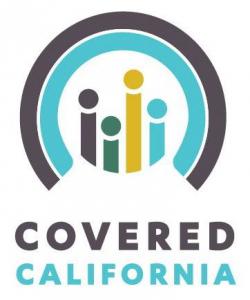The American Booksellers Association is partnering with the Small Business Majority, a Washington, D.C., research and advocacy nonprofit, to hold health-care reform sessions at each of the fall regional meetings.
 At the Southern California Independent Booksellers Association meeting last weekend, Marcia Dávalos, the Small Business Majority's Southern California outreach manager, tried to make complicated issues understandable for booksellers in attendance. The Affordable Health Care Act, aka Obamacare, calls for the establishment of exchange agencies in each state to negotiate with and manage the administrative end of health insurance providers participating in either individual or small business-provided programs. The exchange is called "Covered California" in the Golden State, and Dávalos told booksellers they should think of it as "one big marketplace with two doors": one for individuals who will be required to find insurance under the law and the other for small businesses required by the law to provide coverage if they have more than 50 employees. (The employer part is called SHOP, for Small Business Health Options Program.)
At the Southern California Independent Booksellers Association meeting last weekend, Marcia Dávalos, the Small Business Majority's Southern California outreach manager, tried to make complicated issues understandable for booksellers in attendance. The Affordable Health Care Act, aka Obamacare, calls for the establishment of exchange agencies in each state to negotiate with and manage the administrative end of health insurance providers participating in either individual or small business-provided programs. The exchange is called "Covered California" in the Golden State, and Dávalos told booksellers they should think of it as "one big marketplace with two doors": one for individuals who will be required to find insurance under the law and the other for small businesses required by the law to provide coverage if they have more than 50 employees. (The employer part is called SHOP, for Small Business Health Options Program.)
ABA CEO Oren Teicher told Shelf Awareness that 90% of ABA members would not fall into this category because they have fewer than 50 employees. But if rates come down because of competition among providers under the new law, as the Small Business Majority has seen already, Teicher said, a number of stores might be able to provide coverage for booksellers.
Under state exchanges like Covered California, there will be tiered levels of coverage: bronze, silver, gold and platinum. The bronze tier offers the lowest premium and highest out-of-pocket costs, and the platinum carries the highest premiums and lowest out-of-pocket costs; silver and gold offer coverage between the two. Under the employer-provided part of Covered California, Dávalos said, the employer chooses the tier of coverage and the employee selects the provider, from a pool that includes Kaiser, Health Net and others. Employers who provide coverage are eligible for federal tax credits. The Small Business Majority has information about all of this, including a tax credit calculator, at smallbusinessmajority.org.
Even though small businesses with fewer than 50 employees might not be required to provide insurance, Teicher pointed out that, as employers, their workers will look to them for information, even about the individual part of the Affordable Health Care Act. "Our job is to arm our members with information to empower our members to use the law to their benefit," whether they can provide coverage or not, he said.
ABA has state-by-state health care reform fact sheets at bookweb.org/health-care-reform and Teicher encourages booksellers to attend the sessions on the topic at their regional association meetings. --Bridget Kinsella
 "Our present two-floor retail configuration will stay intact through the holiday season," owner Joyce Meskis told the Journal. "In January, we will start the demolition of the [store's] grand staircase with the goal of being resettled in our reconfigured first-floor space by mid-March." The reconfigured store will have "approximately the same number of books," with shelves "much more tightly packed."
"Our present two-floor retail configuration will stay intact through the holiday season," owner Joyce Meskis told the Journal. "In January, we will start the demolition of the [store's] grand staircase with the goal of being resettled in our reconfigured first-floor space by mid-March." The reconfigured store will have "approximately the same number of books," with shelves "much more tightly packed."








 At the Southern California Independent Booksellers Association meeting last weekend, Marcia Dávalos, the Small Business Majority's Southern California outreach manager, tried to make complicated issues understandable for booksellers in attendance. The Affordable Health Care Act, aka Obamacare, calls for the establishment of exchange agencies in each state to negotiate with and manage the administrative end of health insurance providers participating in either individual or small business-provided programs. The exchange is called "Covered California" in the Golden State, and Dávalos told booksellers they should think of it as "one big marketplace with two doors": one for individuals who will be required to find insurance under the law and the other for small businesses required by the law to provide coverage if they have more than 50 employees. (The employer part is called SHOP, for Small Business Health Options Program.)
At the Southern California Independent Booksellers Association meeting last weekend, Marcia Dávalos, the Small Business Majority's Southern California outreach manager, tried to make complicated issues understandable for booksellers in attendance. The Affordable Health Care Act, aka Obamacare, calls for the establishment of exchange agencies in each state to negotiate with and manage the administrative end of health insurance providers participating in either individual or small business-provided programs. The exchange is called "Covered California" in the Golden State, and Dávalos told booksellers they should think of it as "one big marketplace with two doors": one for individuals who will be required to find insurance under the law and the other for small businesses required by the law to provide coverage if they have more than 50 employees. (The employer part is called SHOP, for Small Business Health Options Program.)
 Amazon is opening a series of small, regional distribution depots under the brand "
Amazon is opening a series of small, regional distribution depots under the brand "


 The Bulb Hunter
The Bulb Hunter From the destruction of Jewish life in Eastern Europe to the establishment of the state of Israel and the extraordinary prosperity and influence of American Jews, the past century has been one of the most eventful, for both good and ill, in the history of the Jewish people. In The Family, journalist and popular historian David Laskin deftly employs the story of his own maternal ancestors as a proxy for the millions who experienced those momentous events, in the process offering some hints at the reasons for Jewish survival.
From the destruction of Jewish life in Eastern Europe to the establishment of the state of Israel and the extraordinary prosperity and influence of American Jews, the past century has been one of the most eventful, for both good and ill, in the history of the Jewish people. In The Family, journalist and popular historian David Laskin deftly employs the story of his own maternal ancestors as a proxy for the millions who experienced those momentous events, in the process offering some hints at the reasons for Jewish survival.